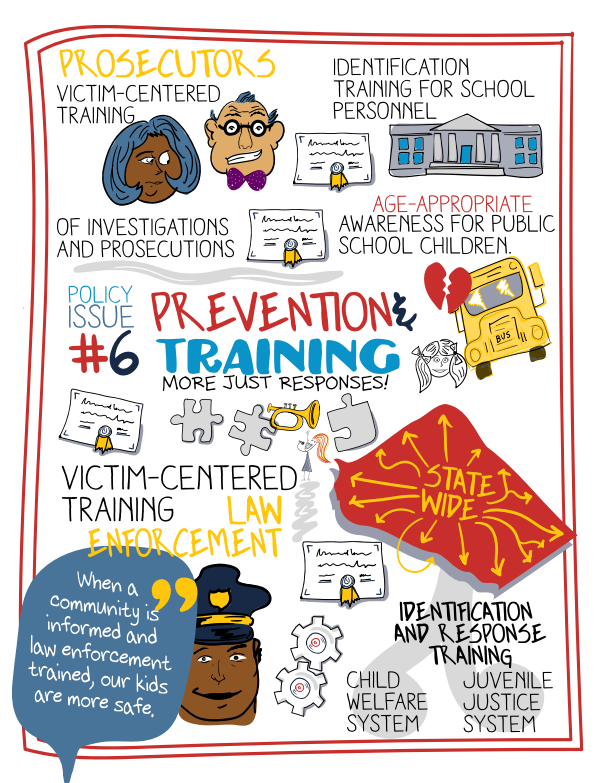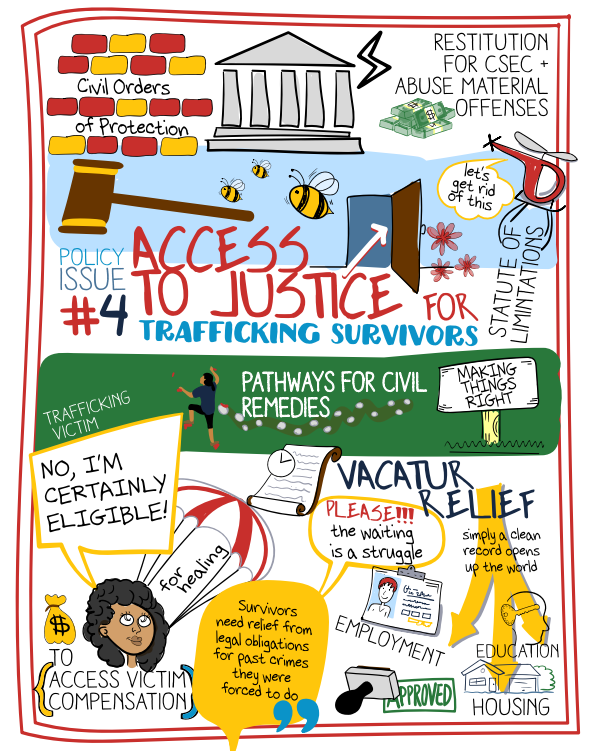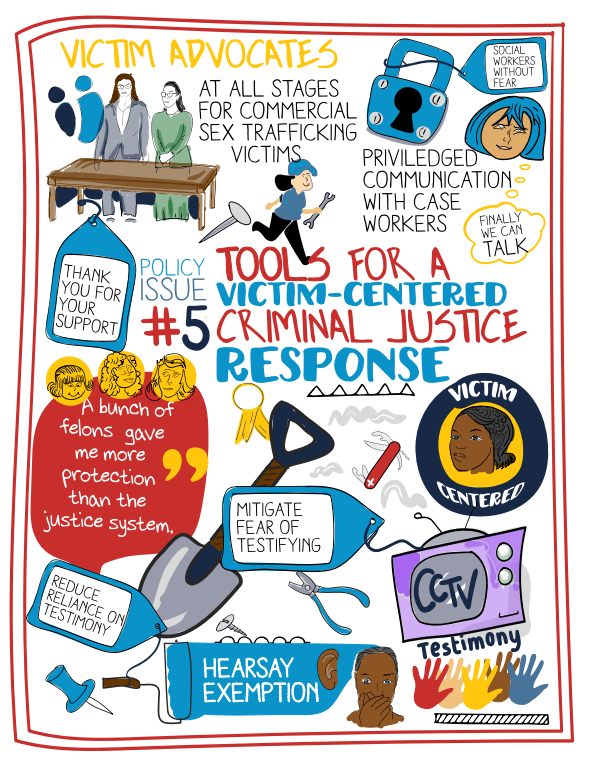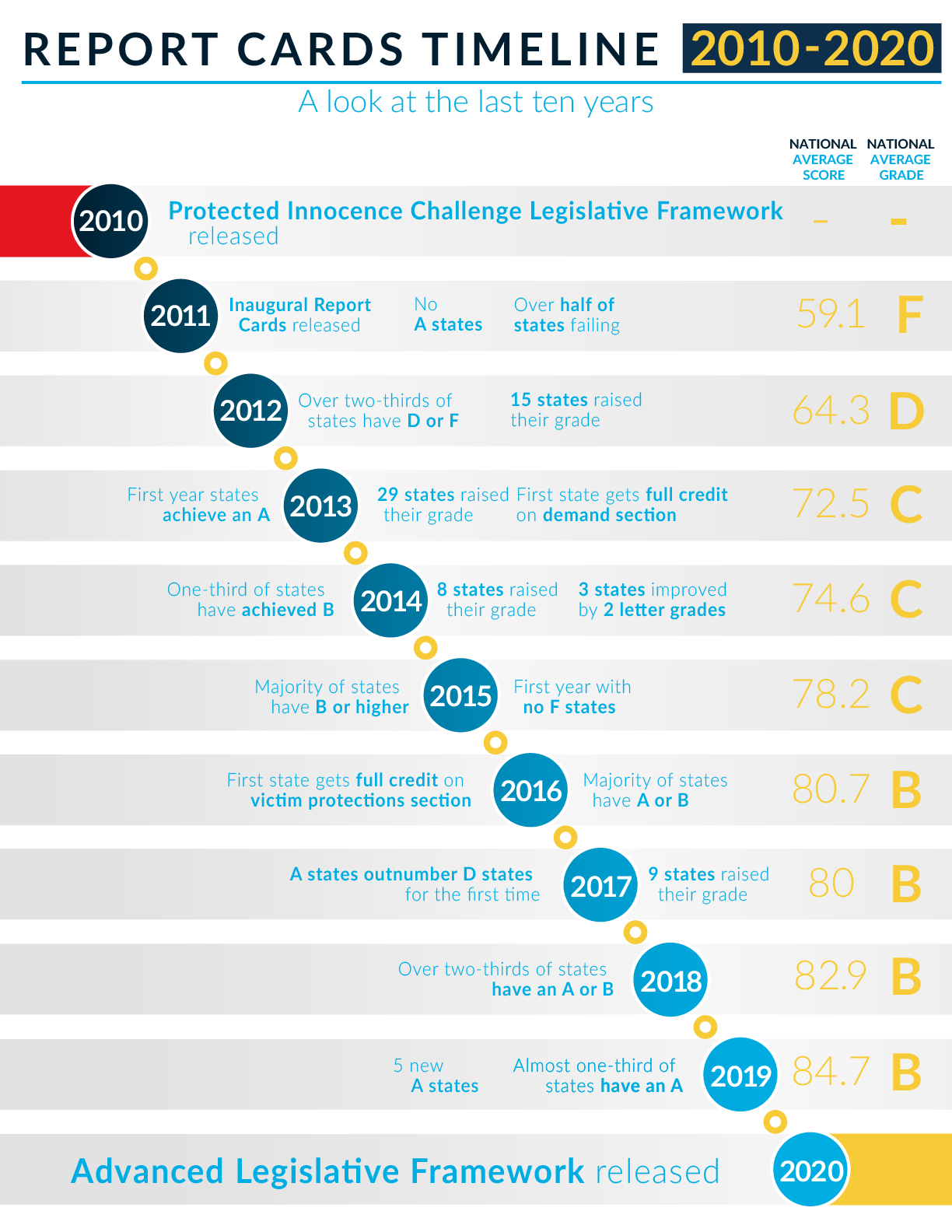For the last several months, we have been reviewing the six Issue Areas that comprise the Advanced Legislative Framework—the rubric for issuing grades in our Report Cards on Child & Youth Sex Trafficking. This month, we are highlighting the final issue: Prevention and Training.
To eradicate sex trafficking, it is imperative that key individuals are trained to identify and respond to sex trafficking. Mandated training for those on the front lines of working with survivors and at-risk children is essential to promptly identifying and responding, or even preventing sex trafficking victimization. Preventing s ex trafficking from the outset can also be accomplished by educating students themselves, giving them the tools to avoid trafficking exploitation.
ex trafficking from the outset can also be accomplished by educating students themselves, giving them the tools to avoid trafficking exploitation.
Child welfare, juvenile justice agencies and law enforcement are some of the earliest interveners with victims of child and youth sex trafficking and often work with them both during and after leaving their trafficking situation. Ongoing, comprehensive training helps ensure these front line responders understand the complexities of trafficking and equips them to create an appropriate response within their community and statewide.
Prosecutors hold a unique position when working with victims of sex trafficking, therefore they should be trained on how to appropriate prosecute in a victim-centered manner, identifying the role of their exploitation in the crimes they committed. Further, prosecutors should be trained to work with victims in a trauma-informed manner through the judicial process, helping them feel comfortable while seeking justice against their exploiter.
Lastly, school personnel and students should receive training to not only identify exploitation in other students, but so students can recognize grooming tactics used against them. We know that many students are targeted by exploiters, but by empowering them through appropriate curricula, we can help them build resiliency and confidence by knowing how to react if they or someone they know is being targeted or exploited. Training school personnel also strengthens the efforts to protect children from exploitation by helping adults identify warning signs that students may be displaying and ensuring they know how to connect students with the care they need.
When key groups are trained on how to recognize and respond to sex trafficking, intervention happens sooner, and appropriate support is given to victims. This a crucial step in ending child and youth sex trafficking and helping those who have been exploited.
To learn more about Issue Area #6 and the other Issue Areas, read the Advanced Legislative Framework.
If you’d like to see the framework in action, sign up to receive your state’s grade when it’s released on November 17!
 When survivors are not appropriately recognized in statute, they are often prevented from receiving the services and protections they need to pursue justice and, consequently, experience further harm in trying to move beyond there victimization.
When survivors are not appropriately recognized in statute, they are often prevented from receiving the services and protections they need to pursue justice and, consequently, experience further harm in trying to move beyond there victimization. For many survivors of child and youth sex trafficking, trauma continues far beyond the exploitation itself and often throughout the resulting criminal justice response. To build a case against exploiters, survivors are often asked to reshare their experience, often in front of others, without an advocate to support them. To create a more survivor-centered and trauma-centered environment, state laws should provide several alternative mechanisms for survivors to be protected when serving as a victim-witness, ensuring they feel as comfortable and safe as possible when participating in criminal justice processes.
For many survivors of child and youth sex trafficking, trauma continues far beyond the exploitation itself and often throughout the resulting criminal justice response. To build a case against exploiters, survivors are often asked to reshare their experience, often in front of others, without an advocate to support them. To create a more survivor-centered and trauma-centered environment, state laws should provide several alternative mechanisms for survivors to be protected when serving as a victim-witness, ensuring they feel as comfortable and safe as possible when participating in criminal justice processes.









